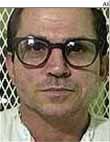|

USA,
STOP ESECUZIONI RITARDATI MENTALI IN TEXAS
NEW
YORK, 23 MAG - Un accordo tra i legislatori locali apre la strada,
in Texas, alla messa al bando delle esecuzioni per gli assassini
che si rivelano ritardati mentali. Il compromesso raggiunto tra
democratici e repubblicani permettera' di mettere a punto una
legge che commuti la condanna a morte in ergastolo nei casi di
provata incapacita' mentale. La nuova legge dovra' essere ora
approvata dai due rami del parlamento dello stato e poi firmata
dal governatore Rick Perry, che per il momento non si e'
pronunciato sulle sue intenzioni. Il Texas detiene il record nel
numero delle esecuzioni negli Usa, che nello stato sono nettamente
aumentate negli anni scorsi sotto la guida dell'allora governatore
George W. Bush. Il Texas in passato ha sottoposto ad iniezione
letale anche detenuti che mostravano un quoziente intellettivo
pari a quello di un bambino, ma le proteste hanno suscitato il
ripensamento sfociato ora nell'accordo per un nuova legge. Uno dei
sostenitori democratici del provvedimento ha detto di ritenere
inumano ''giustiziare persone che non conoscono la differenza tra
cio' che e' giusto e cio' che e' sbagliato''.
27
May, 2001,
Texas
may ban executing retarded
 Lethal
injection is the commonest form of execution The legislature in
the US state of Texas has passed a bill outlawing the execution of
mentally retarded murderers. It now goes to Governor Rick Perry
for final approval, but the governor has said he will wait for the
results of a Supreme Court ruling before deciding whether or not
to sign it into law. The Supreme Court is currently considering
whether the execution of mentally retarded people is
constitutional. Texas has executed 246 people, far more than any
other state, since the resumption of the death penalty in the US
in 1976 - six of those were mentally retarded. "This
legislation is a major step forward that proves that we can be
tough on crime and still have compassionate justice, even in the
wild, wild West," the bill's Senate sponsor, Rodney Ellis,
said. It passed in the Senate by a vote of 20-9 and in the House
80-56. "It is wrong to execute a person who is mentally
retarded," House sponsor Juan Hinojosa said. Lethal
injection is the commonest form of execution The legislature in
the US state of Texas has passed a bill outlawing the execution of
mentally retarded murderers. It now goes to Governor Rick Perry
for final approval, but the governor has said he will wait for the
results of a Supreme Court ruling before deciding whether or not
to sign it into law. The Supreme Court is currently considering
whether the execution of mentally retarded people is
constitutional. Texas has executed 246 people, far more than any
other state, since the resumption of the death penalty in the US
in 1976 - six of those were mentally retarded. "This
legislation is a major step forward that proves that we can be
tough on crime and still have compassionate justice, even in the
wild, wild West," the bill's Senate sponsor, Rodney Ellis,
said. It passed in the Senate by a vote of 20-9 and in the House
80-56. "It is wrong to execute a person who is mentally
retarded," House sponsor Juan Hinojosa said.
Supreme
Court case
 |
|
John
Paul Penry's case is also being considered |
The
case of John Paul Penry, who is awaiting execution in Texas, is
currently before the Supreme Court.
Penry
- who is 44 but is said to have a mental age of 7 - was convicted
of raping and fatally beating a stabbing Pamela Mosely Carpenter
in her home in 1979. The court used Penry's case in 1988 to rule
that mentally retarded murderers could be executed. His lawyers
are arguing that jurors were not given the chance to assess his
mental abilities. Under the Texas legislation, a defendant's
mental capabilities will be determined during the punishment phase
of the trial. Defendants found to be mentally retarded would
automatically have death sentences changed to life imprisonment.
Change
rejected
The
Texas legislature earlier this year rejected a bill that would
have allowed jurors to sentence convicted killers to life
imprisonment with no chance of parole. As the law stands now,
juries can either sentence murderers to death or life imprisonment
with a possibility of parole after 40 years. Thirty-eight of the
50 US states have capital punishment. Fifteen states and the
federal government prohibit the execution of mentally retarded
killers. More than 700 people have been executed in the US since
the death penalty was re-introduced in 1976, including 85 last
year. Timothy McVeigh is scheduled to become the first person
executed by the federal government since 1963.
|

